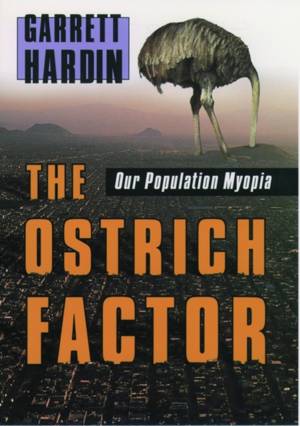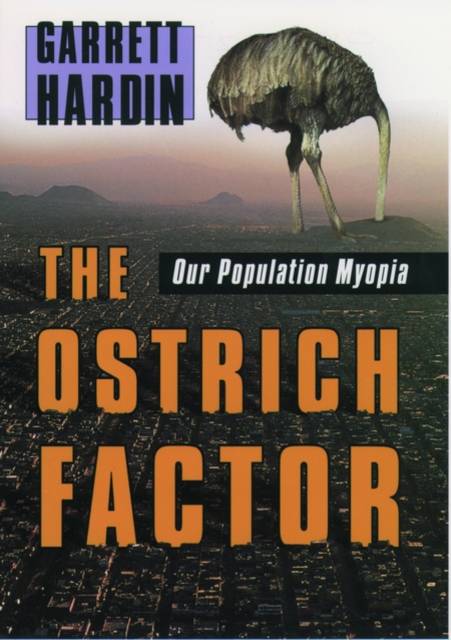
- Afhalen na 1 uur in een winkel met voorraad
- In januari gratis thuislevering in België
- Ruim aanbod met 7 miljoen producten
- Afhalen na 1 uur in een winkel met voorraad
- In januari gratis thuislevering in België
- Ruim aanbod met 7 miljoen producten
Omschrijving
Hardin delivers an uncompromising critique of mainstream economic thinking. Science has long understood the limits of our environment, he notes, and yet economists consistently turn a blind eye to one feature we share with all of our planer's inhabitants -- the potential for irreversible environmental damage through overcrowding. And as humankind draws ever closer to its goat of conquering our final natural enemy -- disease -- the fallacy of sustainable unchecked population growth becomes more and more dangerous. Moreover, Hardin argues, rampant growth will soon force us to face many issues that we will find quite unpalatable -- most notably, that since volunteer population control will not work, we wilt have to turn to "democratic coercion" or "mutual coercion, mutually agreed upon" to limit growth, a policy that directly threatens long cherished personal rights. Challenging an array of powerful taboos, Hardin takes aim at sacred cows on both sides of the political fence -- affirmative action, multiculturalism, current immigration policies, and the greed and excess of big business and "growth intoxicated industrialists".
Hardin's forceful and cogent argument for the union of ecology and economics is a must for anyone concerned with the goat of a bountiful yet sustainable world. Sure to spark controversy, this book underscores the urgency of our situation and reveals practical steps we must take to ensure the long term survival of humankind.
Specificaties
Betrokkenen
- Auteur(s):
- Uitgeverij:
Inhoud
- Aantal bladzijden:
- 176
- Taal:
- Engels
Eigenschappen
- Productcode (EAN):
- 9780195122749
- Verschijningsdatum:
- 15/04/1999
- Uitvoering:
- Hardcover
- Formaat:
- Genaaid
- Afmetingen:
- 146 mm x 216 mm
- Gewicht:
- 340 g

Alleen bij Standaard Boekhandel
Beoordelingen
We publiceren alleen reviews die voldoen aan de voorwaarden voor reviews. Bekijk onze voorwaarden voor reviews.









